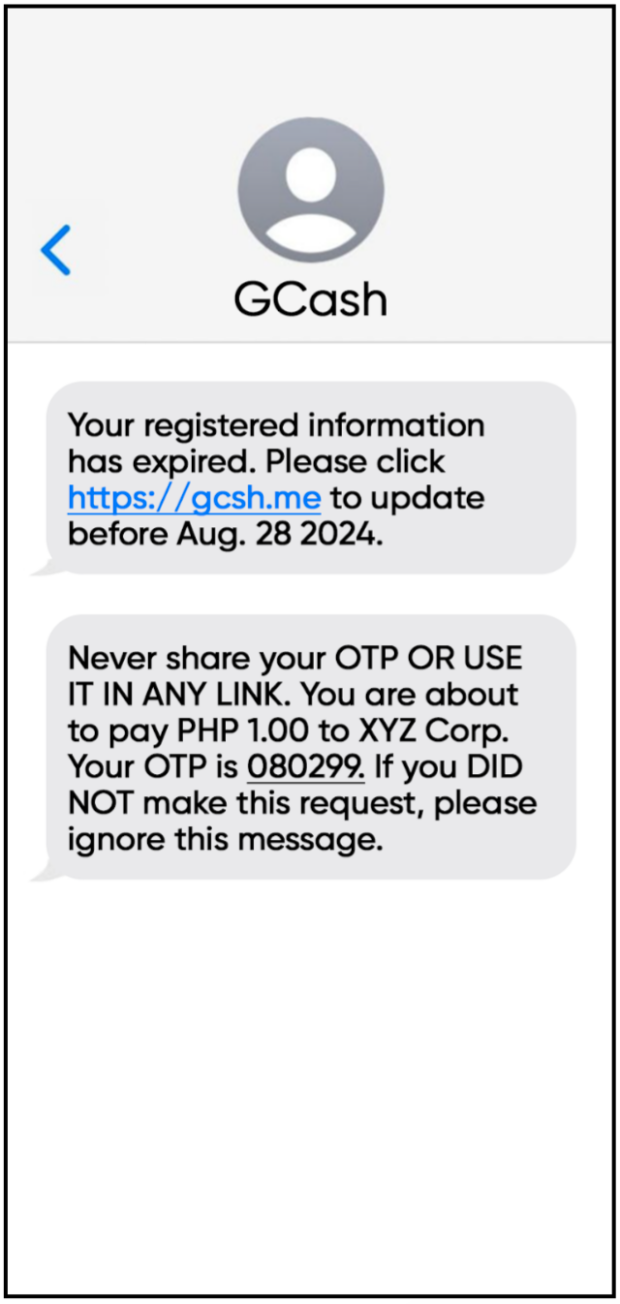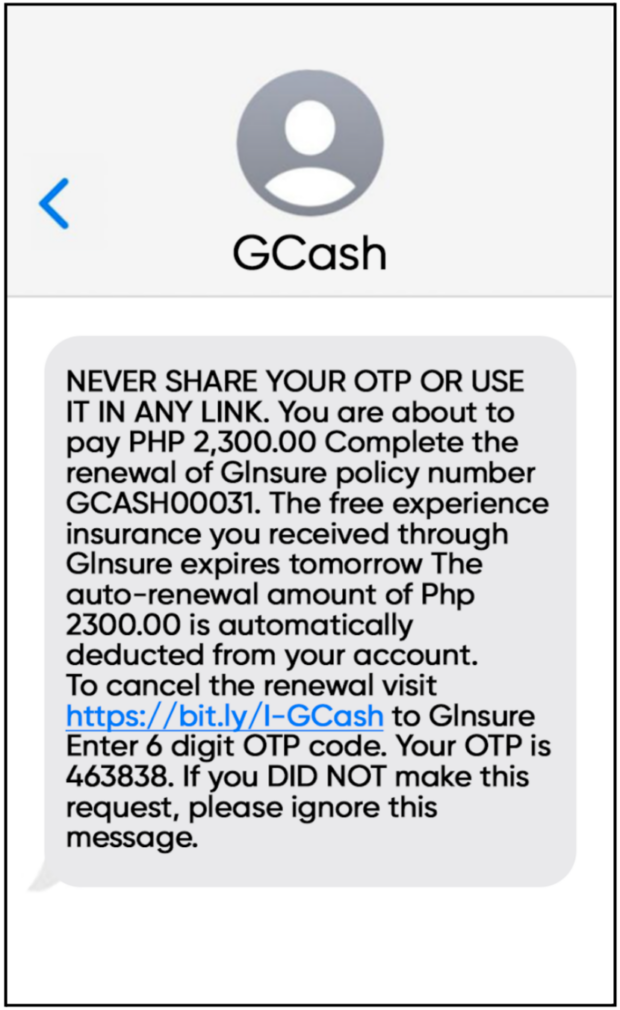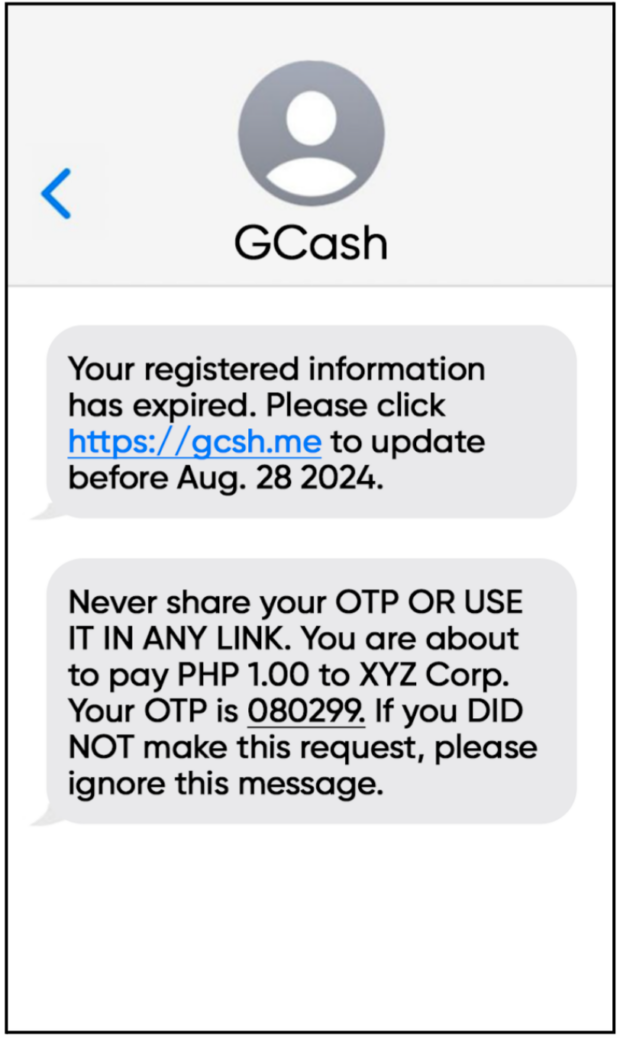‘Hindi GCash yan’: What is SMS Spoofing Scam and what you should do when you see one
Some of us might already be familiar with phishing scams, such as fake online gaming sites, and fraudulent raffle announcements. But by the minute, scammers are thinking of new ways to deceive unsuspecting victims.
SMS spoofing is one of their latest tricks. If you were able to tell a scam by the sender’s email address and mobile number, cyber criminals now make it difficult to do so, even for tech-savvy individuals.
What is SMS Spoofing? Spoofing is when criminals impersonate a legitimate source to coerce users into providing their data. In SMS spoofing, scammers make a text message look like it came from a trusted sender, which is usually indicated by shortcodes or names instead of 11-digit mobile phone numbers.
For instance, scammers may send a suspicious message that might appear to be from legitimate financial institutions and organizations, warning you about an urgent issue with your account and urging you to click on a link. The message might appear in the same conversation where the legitimate account usually sends OTPs and important advisories, making it seem even more authentic.



Telco 101: How are messages sent and received? To send and receive calls and messages, your mobile phone connects to a cell tower. These towers act as relay stations, transmitting signals between your phone and the network. Your phone typically connects to the closest one to get the strongest signal, so as you move, your phone may also switch cell towers.
So how does SMS spoofing happen?
Cybercriminals make use of an IMSI catcher to act as a fake cell tower. This device lures mobile phones to connect to it, giving scammers control over the transmission of messages. They usually deploy this at locations where many people are using their phones.
Once the cybercriminals have lured mobile phones into their network, they can send out fake messages that appear to be from trusted institutions like GCash. These messages often copy the tone and format of legitimate institutions to urge customers to click on the link.
If you click the link of a spoofed message, you will be redirected to a seemingly legitimate page that will prompt you to provide personal information. Cybercriminals impersonating GCash will ask you to provide your MPIN and OTP, posing as an online store and disguising the fund transfer as a legitimate purchase to bypass security features.
What should you do when you suspect an SMS spoofing?
If you receive a text message that appears to be from GCash that asks you to click on a link to verify your account or claim a prize, Stop, Think, Don’t Click on Links! It’s not GCash, it’s SMS Spoofing scam. This is a prevalent issue in the industry, and GCash is committed to fighting this threat.
Remember that GCash will never send links via SMS, email, and messaging apps. All legitimate rewards and promos will only be communicated through the official GCash app. To protect yourself, never share your MPIN and OTP with anyone. Do not reply to the suspicious message and delete it immediately.
As scammers get smarter, it’s important to be extra careful. By being vigilant and understanding SMS spoofing scams, you can take an important step towards protecting your hard-earned money and keeping your peace of mind.
If you encounter SMS spoofing scams and fraudulent activities targeting your GCash account, you may report by visiting the official GCash Help Center in the app or at help.gcash.com, message Gigi on the website and type, “I want to report a scam.”
ADVT.
This article is brought to you by GCash.